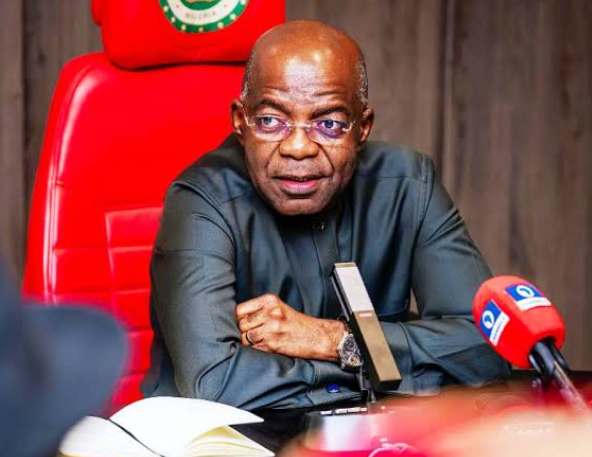
Vindicated at Last: Yomi Fabiyi Celebrates as Baba Ijesha Walks Free After Appeal Court Overturns Conviction

In a dramatic turn of events that has sent shockwaves through Nollywood and legal circles, actor Yomi Fabiyi has joyfully announced that his colleague, Olanrewaju Omiyinka — better known as Baba Ijesha — is now “free and out,” following a landmark ruling by the Court of Appeal. After more than three years behind bars, the once-convicted actor has regained his freedom, and Fabiyi’s triumphant message on Instagram reflects both relief and vindication.
Fabiyi, who has long been one of Baba Ijesha’s most vocal supporters, shared his elation publicly, writing, “You are now officially FREE AND OUT. Baba Ijesha is not just back but BETTER.” He went on to express his gratitude to the Appeal Court for overturning the prior judgment, adding, “I am also happy you were cleared by the APPEAL COURT of ever having sex/defile any child/minor. The 7-year-old story is a charade. We live in a terrible world, where sentiments and wickedness rise above the rule of law and truth.”
The case, which polarized the Nigerian entertainment industry and ignited fierce debates about justice, due process, and the handling of child abuse allegations, began in 2021 when Baba Ijesha was arrested. In July 2022, he was convicted by a Lagos State High Court and sentenced to 16 years in prison on charges related to sexual assault of a 14-year-old girl.
But the Appeal Court’s decision has rewritten the narrative. According to reports, the appellate judges found that the prosecution’s evidence was insufficient to sustain the conviction. Fabiyi, in his statement, echoed those concerns, calling the entire process “poorly handled” and insisting that critical inconsistencies — such as alleged age falsification and gaps in the investigation — were ignored the first time around. He further accused unnamed parties of weaponizing abuse, saying the “14-year-old narrative” was never properly verified in court.
Fabiyi didn’t just stop at criticizing legal technicalities. He leveled sharp accusations toward others involved in the scandal, claiming that some people may have pursued the case as a vendetta, arguing that Baba Ijesha was “a weak target” manipulated into this situation. He pointed fingers at a man named Damola Adekola — allegedly arrested alongside Baba Ijesha during the original probe — claiming that despite admitting to a sexual relationship with the girl, Adekola was somehow allowed to walk free. Further, Fabiyi accused Princess Comedian (the foster mother/guardian of the girl) of grooming her and of negligence, even suggesting that sperm found during the investigation did not belong to Baba Ijesha. He went as far as to describe the installation of surveillance cameras in Princess Comedian’s house — allegedly set up on the day of the film shoot — as “child pornography” and “re-traumatization of a minor.”
Despite these contentious claims, Fabiyi was careful to reaffirm his human rights advocacy. He stressed that his support for Baba Ijesha did not mean condoning abuse, especially involving children. “We never and will never condone any form of sexual abuse, especially involving minors,” he insisted, emphasizing that his fight has always been about justice and the protection of fundamental rights.
Sources suggest the Appeal Court’s ruling hinged on the weakness of the prosecution’s evidence. According to Ripples Nigeria, the court found that the earlier conviction could not stand because key aspects of the case were not convincingly proven, leading to the decision to set Baba Ijesha free. A video circulating online appeared to capture Baba Ijesha shortly after his release; in Yoruba, he reportedly said, “Apase, I’m out … I just came out … I want to relax … Thank you for supporting me.”
Public reaction has been divided. For many in the Nollywood community and beyond, this is a moment of celebration, especially among those who believed Baba Ijesha was wrongly convicted. But for others, concerns persist — some are questioning how deeply the appeal court probed the original evidence and whether systemic issues in handling sexual abuse claims have been ignored once again.
Still, in his post, Fabiyi struck a tone of optimism. He hailed the appellate court’s decision as a restoration of truth over emotion, stating explicitly that he wants this case to serve as a lesson: that allegations — especially ones as sensitive as sexual abuse involving minors — must be treated with care, and that justice demands both rigor and compassion.
As Baba Ijesha steps out of prison, the drama that defined his legal battle enters a new chapter. This is not just the end of his incarceration; for many, it’s the beginning of a reckoning — with public opinion, with the courts, and with the very systems that govern how we handle deeply painful, high-stakes allegations. And as Yomi Fabiyi celebrates his friend’s freedom, he makes clear that his fight will not end here. He insists that his commitment to human rights and fairness remains steadfast, and he calls on the public, the media, and the justice system to learn from what he describes as a “selective justice” that nearly ruined a life.
Baba Ijesha’s release, Fabiyi says, is not just a personal victory; it’s a victory for due process. And in Nigeria’s swirling landscape of celebrity, scandal, and courtrooms, that might be the most powerful message of all.


